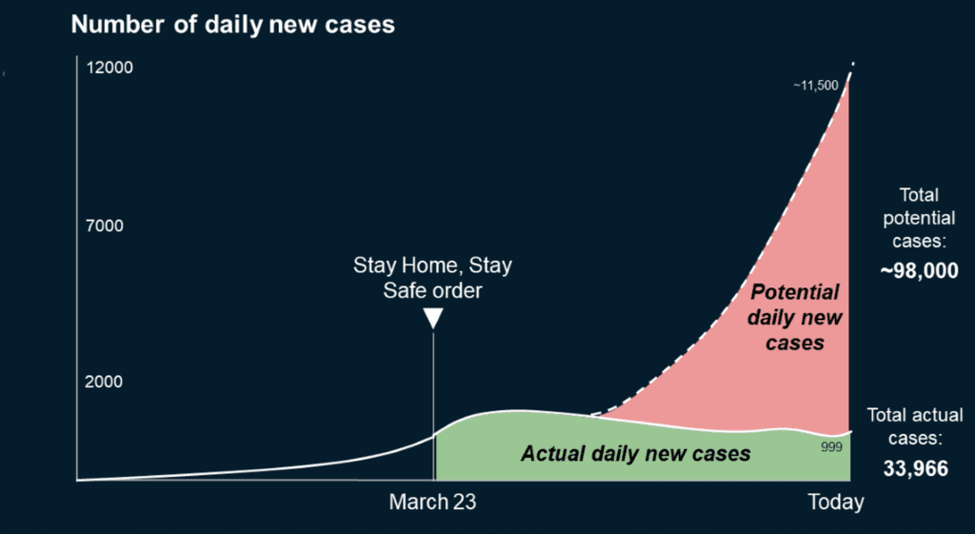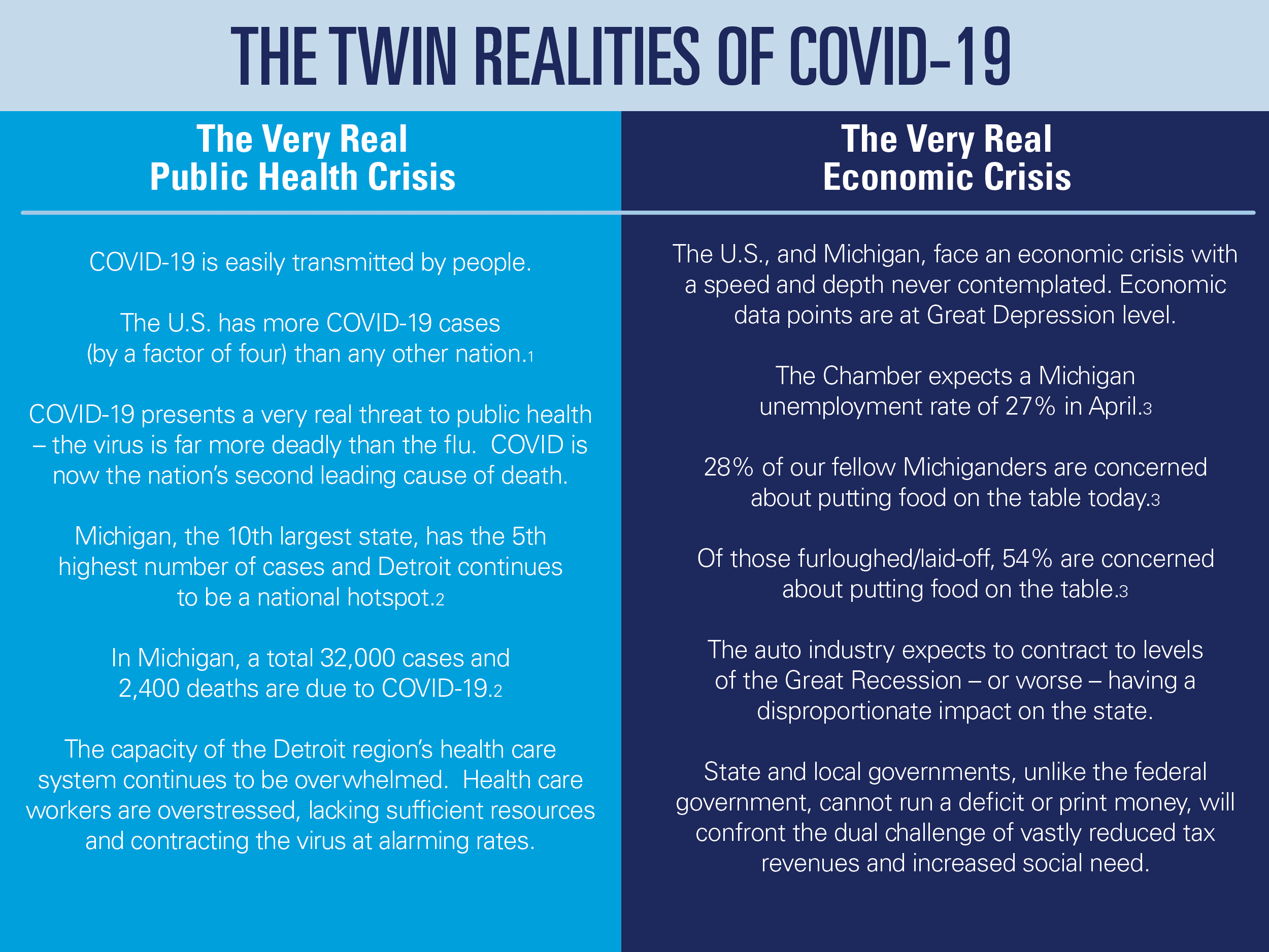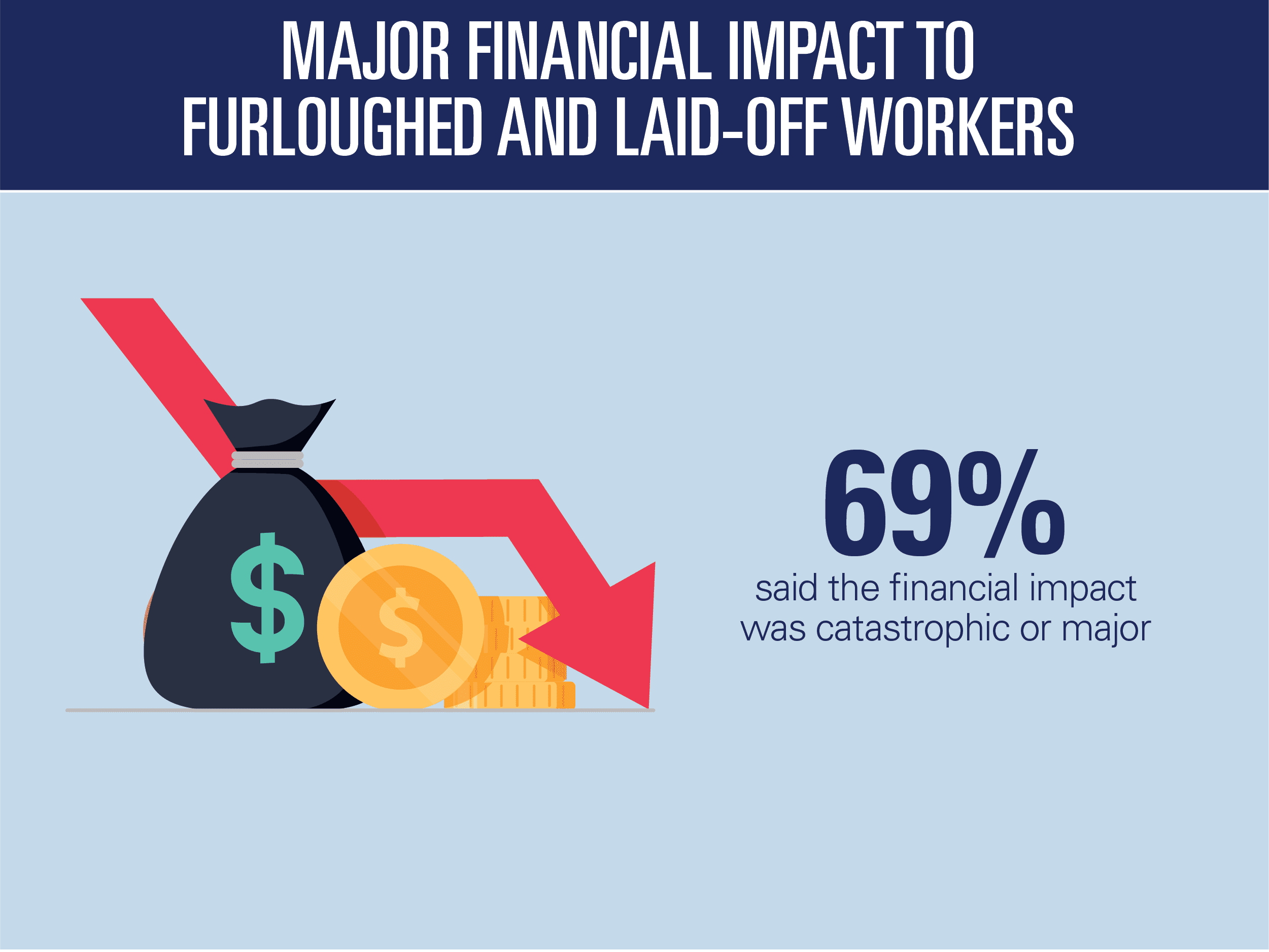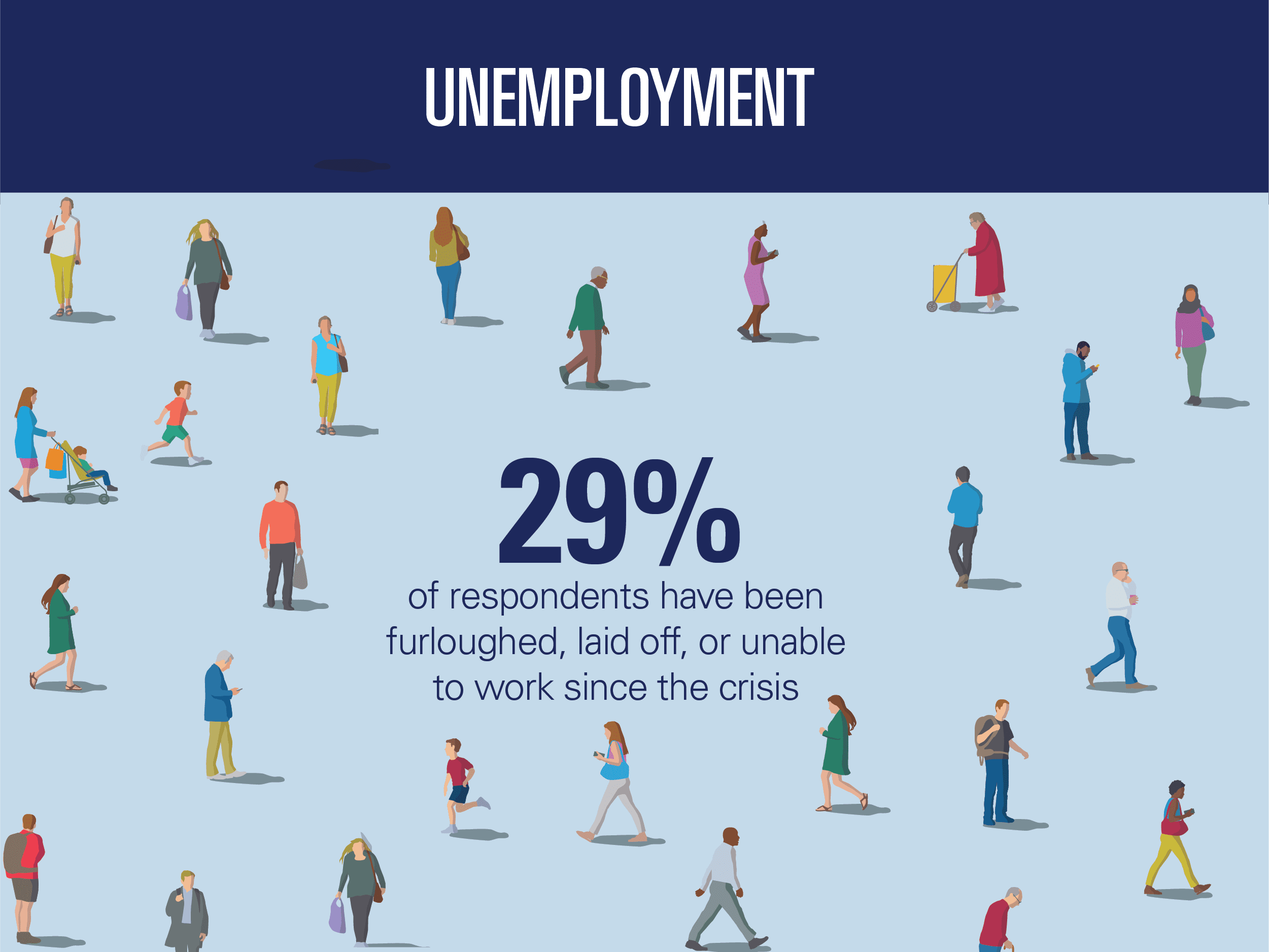Detroit Regional Chamber Point of View: Reactivating Our Economy Amid COVID-19
April 23, 2020Issue Date: April 23, 2020
This document represents the general point of view of the Detroit Regional Chamber focused on restarting Michigan’s economy. It is not intended to serve as a “restart plan” but represents a summary view of the position the Chamber is taking as it engages with officials from the local, state, and federal levels.
The Philosophy of Collaborative Restart
The politics of “us” versus “them” have perhaps never posed such grave risks. The public health concerns presented by COVID-19 cannot be overstated, and the depth of the economic repercussions are unlike anything we have experienced. This crisis is no time to allow a dichotomy pitting “pro-health” versus “pro-business” camps.
Restarting the economy will require a thoughtful plan giving proper consideration to both business and public health voices. The Detroit Regional Chamber applauds both the Legislature and governor for thoughtfully approaching this critical issue. While currently the governor and leaders of the Legislature differ in their approach, they have been thoughtful and have strived to balance public health and economic issues. The Chamber encourages them to work together to develop a consensus plan.
Social Distancing and ‘Stay at Home’ Have Been Effective

While public health and safety must remain paramount, Michigan can build off the success of the “Stay Home, Stay Safe” Executive Order. The Detroit Regional Chamber supports starting a responsible, phased reopening process in early May. Restart phases can advance as reported cases continue to reduce, and more testing and contact tracing become available.
Source: State of Michigan 4/23/20
Facing Twin Challenges of Historic Proportions
Michigan, like the rest of the country, faces twin challenges of historic proportions. The very real public health and very real economic crises both have the capacity to undermine or exacerbate the other and must be factored into restart decisions simultaneously.

 |
 |
Source: Detroit Regional Chamber statewide poll – April 15-16, 2020
Our Assumptions
- Stay-at-home orders have been instrumental to avoid catastrophic health outcomes.
- With perhaps a few exceptions, currently, no nation has the sufficient testing capability public health officials suggest is required to meet the challenge and a vaccine is likely at least a year away. Continuing widespread stay-at-home orders until these challenges are solved is impractical.
- There is no zero-risk path forward.
- The public’s adherence to stay-at-home orders is likely to wane as the weather warms, likely leading to increased social tension.
- Different parts of the state are facing different levels of COVID-19 related health issues and the highly contagious nature of COVID-19 means it could easily overwhelm regions with limited health care capacity.
- The confidence of both employees and customers to return to the workplace will require broad-based safety measures.
- Broad-based guidelines for public interaction, such as wearing masks while shopping or utilizing public transit, will assist in protecting public health as the phased restart progresses.
Restart Point of View
Economic Restart Should Commence in Phases
- Restarting our economy is not like flipping a light switch – it must be thoughtfully phased and closely monitored.
- Factors to consider in developing phases include, but are not limited to; the impact of the virus on different regions of the state, capacity of regional health care, time sensitivity of industry, speed of pathway to safe operation for both employees and public
- The state must guard against a “false start.” Another severe outbreak of the virus that overwhelms our health care capacity, necessitating a renewed economic shutdown may cause even more catastrophic economic damage.
- May 1st is the suggested target date for the initial thoughtful phased restart to commence.
Define Restart Regions and Avoid One-Size-Fits-All Strategies
- A one-size-fits-all approach is not advisable as different regions are experiencing different levels of the crisis.
- Regions should be defined by health care capacity and labor density rather than county lines or preexisting definitions of a region.
- Until COVID-19 testing is more widely available, travel between highly and less infected regions should be curtailed.
Consideration for Time-Sensitive Industries
- Industry sectors relying on spring and summer peaks should be prioritized with accelerated paths to safe reopening.
- Operations more conducive to restarting with social distancing or PPE implementation should be among the first with pathways to reopening. Those industry segments should be allowed to self-certify adherence to guidelines, but be subject to penalties for violations. Possible examples to consider include appointment-based, non-contact professional services (e.g. law firms, accounting services), and certain forms of outdoor work, construction, and manufacturing.
Plans Must Take into Account Toll on Health Care Providers
- Overwhelming our health care system would likely force Michigan to revert back to stricter measures, which is more damaging economically in the long run.
- Reopening decisions should take into account if there is adequate health care capacity available for possible spikes as regions progress through various restart phases.
- Health care providers in different regions have varying bandwidths to treat patients and tourism and travel restrictions may need to be extended in early restart phases.
Until There Is a Vaccine, There Is No Such Thing as ‘Business as Usual’
- Revised physical layouts, processes, and operational plans will need to be implemented at most places of employment or commerce to ensure social distancing and other preventative measures (e.g. disinfecting commonly used items) to continue the mitigation of future outbreaks.
- Operations requiring PPE must have a documented plan to secure PPE before reopening.
- Work-from-home practices should continue to be encouraged, limiting density in workplaces even after stay-at-home restrictions are eased. Additionally, staggered work times to limit workplace density are also encouraged.
- Employers should explore avenues of private testing where possible to alleviate pressure on the state, as well as closely monitor employees’ health statuses, including possible temperature screening.
- New procedures resulting from each phase will continue to be very real adjustments for all of us, but proper preparation can help restore certainty and strength to an otherwise restricted economy.
More information on international best practices for testing and tracing COVID-19 are available at DetroitChamber.com.
Sources:
- worldometers.info (April 21, 2020)
- COVID Tracking Project – U.S. Census Bureau (April 20, 2020)
- Detroit Regional Chamber statewide poll – April 15-16, 2020
Related Content:
https://testportal.detroitchamber.com/covid19/gov-whitmer-to-reopen-construction-may-7/
https://testportal.detroitchamber.com/covid19/michigan-economic-recovery-council-advises-gov-whitmer-on-reopening-based-on-risk-geography/
https://testportal.detroitchamber.com/covid19/resources-for-restarting-business-operations/
